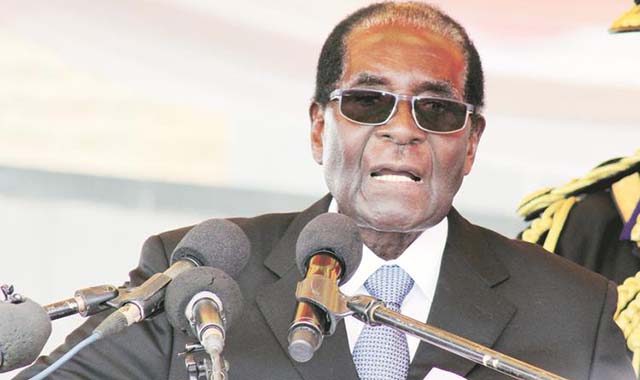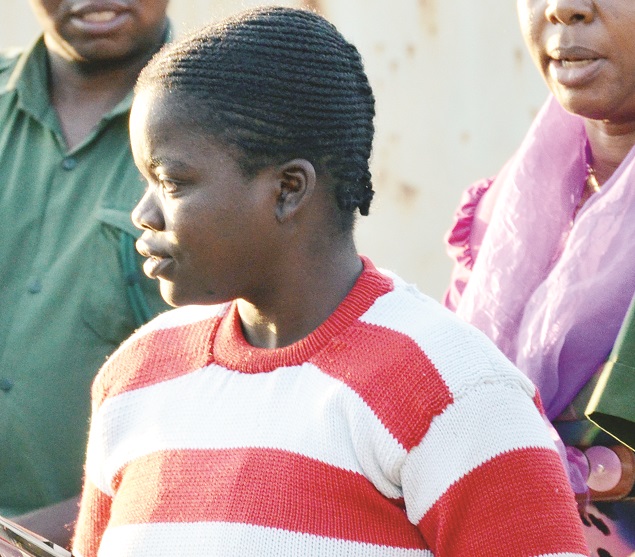When common sense paid a rare, fleeting visit

Spectrum, Joram Nyathi
MOST people would be aware of the Ezulwini Consensus reached in Swaziland in 2005 and adopted by the African Union in Ethiopia.
It contains a modest proposal for a bigger say by Africa in the affairs of the United Nations, the world’s most representative organisation by country affiliation.
Given its population size and natural resources, and the global village’s obsession with representative democracy, Africa has demanded that it be allowed to have two permanent members with veto power in the United Nations Security Council, and five non-permanent seats.
At the moment Africa is the only region not represented in the UN Security Council.
There is no other explanation for this exclusion other than that the continent was largely under colonial rule when the UN was formed on the ashes of the League of Nations in 1945, and therefore did not have a voice. Africa was a dark continent. But then democracy itself did not ring so loud for the Dark Continent then. And things have changed, we have moved on, the world is supposedly more enlightened.
Why is democracy coming alone on to the Dark Continent and leaving behind the necessary power and representation at the world’s most inclusive body’s executive arm, the Security Council?
That must have been the simple but profound reasoning of the African leaders who gave birth to the Ezulwini Consensus in Swaziland back in 2005.
More than a decade later nothing has happened and representation at the UNSC remains a matter of grave concern for African leaders seized with the advancement of its people and their role in global affairs.
It is not an idle demand, but a matter of democratic representation. It is about the dignity of Africans. One would therefore expect this plain truth to be self-evident to the local champions of democracy, including their political movements, and civic society organisations.
The intelligentsia too. The future leaders, those people one would expect to carry on the fight for Africa’s place in the sun, to give fruition to the dream of their forebears.
Why should Africa not be represented in the UNSC?
When President Mugabe returned from the 71st UN General Assembly in New York last week, he indicated that African leaders had discussed a possible withdrawal from the UN if there were no reforms to actualise the Ezulwini Consensus.
He did not say Zimbabwe wanted to pull out, but that it was ready to, in sympathy with the common African position, if there was no movement on this vital matter by September next year.
The remarks were attacked by the distortionists who know only too well who butters their bread; the front runners against any policy which seeks to empower black people – the Mugabeism which must be uprooted branch and root.
It was like Mugabe had said slavery was good for the African when the intention is the exact opposite.
The statement was twisted and distorted no end, with dire scenarios manufactured to create maximum fear about the funding benefits Zimbabwe would lose by withdrawing its UN membership.
But all those seemingly practical and rational considerations were only a mask for something subliminal – fear of challenging anything that anchors and sanctifies white supremacy.
If America and Europe don’t want African representation in the UNSC, then it must be bad for Africa, it is not a priority.
African rights come third, seventh, tenth after those of white Americans and Europe. White rights and dominance are ordained by the divine, they cannot be subtracted, not even by the march of history and enlightenment since 1945, let alone at the behest of Africa. There, history must stand still.
The critics should have saved their precious words. Africa has never been known to act in concert to defend its own interests. Not when most nations on the continent are led by the likes of Ian Khama who have no qualms about causing unnecessary tensions in organisations sworn to regional integration such as the Southern African Development Community.
It would be next to impossible for people like President Mugabe to master enough numbers at the critical moment for a quorum to even draft a withdrawal resolution.
The resistance will, as usual, be led by the same black intellectuals who help to serve the white world and its interests today, the same Lazaruses crouching for crumbs under the table who believe singing for white donations and sponsorship signifies independence of thought, and deride what they describe as patriotic journalism.
Only the white man makes authentic, genuine, neutral history. The independent African intellectual and journalist has a patriotic duty to listen to the white man’s view of the world.
But that is to miss the point. The issue is not whether or not what President Mugabe said is practical or practicable. It is about attitude, a mindset which says Africa must be free.
Free of foreign domination, free to exploit its vast natural resources for the benefit of its people. A veto power in the UNSC means Africa can stop dastardly decisions like those of the Berlin Conference in 1884, or Resolution 1973 of 2011 which led to the destruction of Libya.
Unfortunately, the spirit of African independence long died from surfeit of white intellectual patronage. Lobengula could not read when he reportedly put the infamous X to the Rudd Concession; we sign our own death certificates with our eyes wide open.
Evidence: as the nation fights to build a new, indigenous-owned economy, opposition leaders have no shame about making a beeline for Chatham House in London to seek endorsement and patronage money by denouncing the same policies. They return home to face rejection at the polls.
Yet their sojourn is not such an aberration. It’s logical. An aberration was the Daily News Comment on Wednesday this week.
——–A rare tale from Daily News——–
The Leader headline was mundane enough, “Stop the violence”. That was in the issue of September 28, 2016. It related to a story of Zimbabwe
People First officials who were reportedly beaten up by political rivals in Guruve, Mashonaland Central.
This is a newspaper which doesn’t tire of reminding the nation about “much-anticipated” elections as if they were on tomorrow.
This time around it acknowledged harmonised elections were still far away, yet political temperatures were rising sharply. The upsurge in politically-related violence was disturbing, the paper observed.
I was compelled to check again the masthead if I was reading the right paper. It was too sober to be true. Because in the past few months ahead of the Sadc summit in Swaziland and the UN General Assembly in New York, the paper seemed to run out of superlatives in defence of violent demonstrations around the country, claiming this was a right enshrined in the national constitution.
—–Democracy in practice.—–
It is the same publication which propped up a paper tiger called Evan Mawarire before he met his Waterloo in New York last week, leaving his flock of the equally gullible high and dry back home.
It was the same paper which incited the violent demonstrators who said they wanted to march to State House to force President Mugabe out of power.
The same paper again which reported lustily about how the Nera ensemble was “unfazed” or would “ignore” a police ban on demonstrations in Harare, and how they have “outwitted” the police.
When the police intervened to stop the violent protests, they were accused of brutality, of using excessive force even when they were being attacked and stoned by the protesters.
The paper was literally in the opposition trenches cheering the violent protests on while also appealing to Sadc leaders and the United Nations to intervene. Headlines about Zimbabwe or Harare burning entered its lexicon with undisguised gusto.
Wednesday’s Comment rang with a sober tone for once since the paper’s lucky resurrection after committing legal suicide in 2003. Listen to this:
“There is no way we can tell the police how to do their job but we hope they will leave no stone unturned and arrest whoever bludgeoned Mutambara and company regardless of their political affiliation.”
Indeed, let the police do their job. Especially if you can’t tell them how to do it, like handling violent protests against an elected government.
That’s the only way we can all help “stop the violence”. Violence is like a veldfire. It can consume those who incite it, too. The paper lamented that we have “nurtured violence” into a national culture. This was blamed chiefly on politicians. It would be too close to the bone to point out the role of irresponsible journalists who evidently don’t know what to do with so much freedom.
As I finished reading the Comment, I reflected charitably: Could this signal the beginning of responsible journalism, or was it rare common sense making a fleeting visit?
It was a gross aberration. The following day we were back on the familiar path of a nightmarish Zimbabwe.











Comments